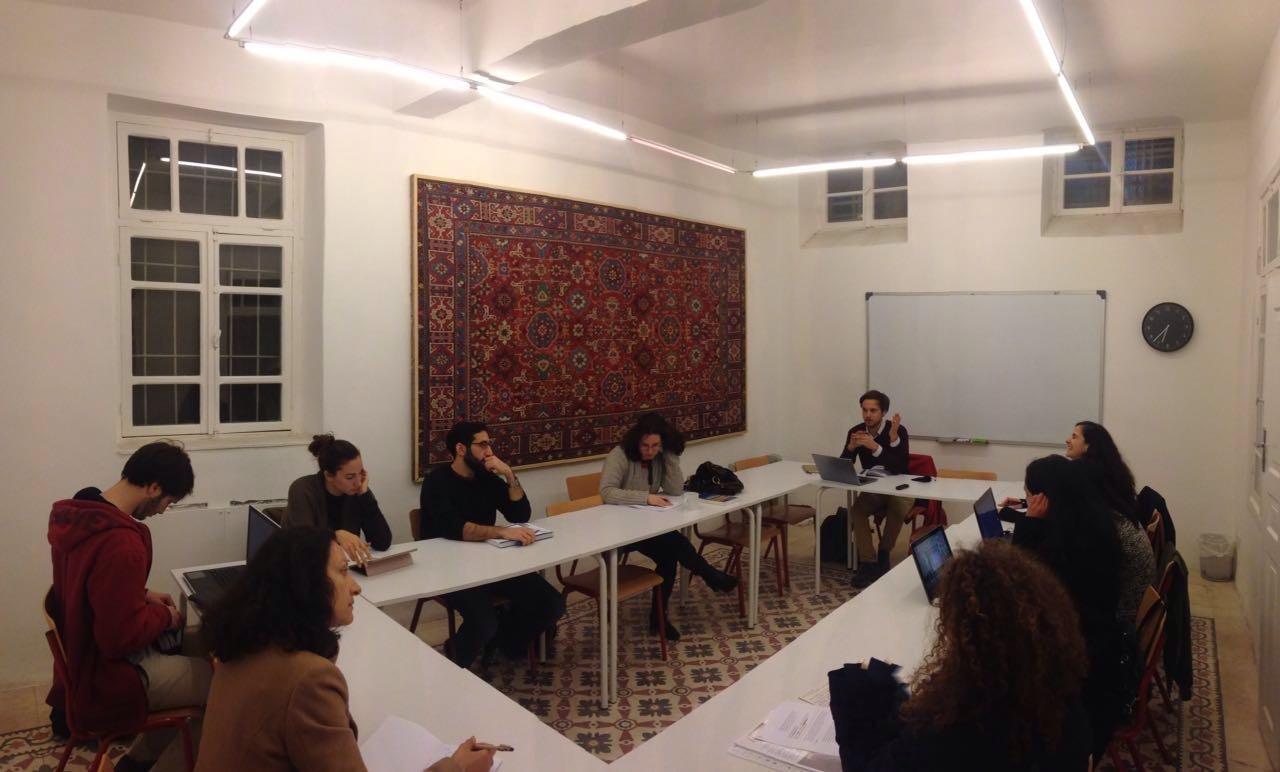In March 2016, Studio-X Amman, in partnership with Sijal Institute for Arabic Language and Culture, launched the Janet Abu-Lughod Library seminar, a series of meetings led by Zachary Sheldon, doctoral student in Socio-Cultural and Linguistic Anthropology at the University of Chicago, and Fulbright Research Fellow in Amman. On June 22, a celebratory event and discussion will be held at the Sijal Institute to share ideas and explorations discussed during the seminar with the public, as well as for participants to reveal how the readings have influenced their own personal work and understandings of the city.
Seminar abstract: If we wish to understand the city, where do we begin? From the very start, we are confounded with the variety of histories, scales, populations and environments that converge to give urban spaces their distinctive character. Among scholars of cities, the sociologist Janet L. Abu-Lughod stands apart by offering us a breadth of vision that embraces the topic in its fullness and complexity. Through a lifetime of work that illumined villages and world systems, ancient histories and modernization processes, Chicago and Cairo, Abu-Lughod’s insights transformed the fields of urban sociology, Middle Eastern studies and world history. Now, for the first time, we can join Janet Abu-Lughod on this remarkable intellectual journey through exploring her personal library. This collection of works, many bearing her own marginalia, reflects the full variety of her interests and the extent of her influence. Over the course of six seminars, participants read works from the collection that describe the city at scales ranging from the global flow of labor and capital to the movement of the individual body in space. They have also applied these concepts to cases drawn from American and Middle Eastern contexts, to ask how cities do, and do not, vary across space, time and cultures.
